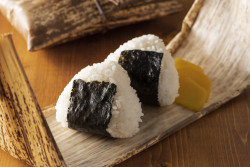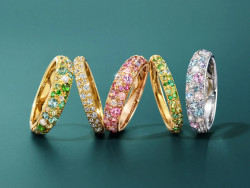
July 10, 2008
Long Live the Queen
TV host Charles Ayres scours the city for his prince
By Metropolis
Originally published on metropolis.co.jp on July 2008
Charles Ayres is really making a name for himself in Japan—so much so, he’s had to revamp his old name, adopting the more regal-sounding Charlemagne. “I feel like my parents were trying to curse me with a boring life,” says the 30-year-old American. “Charles sounds so stodgy. I wanted to find a way to take what I have and make it really glamorous.”
Searching out Tokyo’s cutest guys for the TOKYO MX show Goji Ni Muchu is a far cry from his roots in Kansas City, Missouri. But even as a young boy, Ayres had begun dreaming of breaking free from the American Midwest. Inspired by movies and images of Japan that saturated the media at the time, he fantasized about a life in the Far East. In fact, he began taking Japanese lessons when he was only 10 years old.
“Rewind to America in the ’80s—you had movies like The Karate Kid, Shogun and everything in the news was about how Japan was going to take over the world. You know how children go up to their parents and say, ‘I want to take the cello’ or ‘I want to take pottery?’ Well, I was like, ‘I want to take Japanese.’”
In 1997 he was off to New York, attending prestigious Columbia University and majoring in East Asian Studies. That’s when his creative tastes, and a penchant for designer ensembles, really started to blossom. After interning for world-renowned Japanese designer Issey Miyake, Ayres decided he wanted to pursue a career in fashion. “I got my pay in clothes,” he recalls. “I was a college kid walking around in $800 sweaters. I was a fashionista in heaven.” Soon, though, he set aside his fashion dreams to pursue a master’s degree in Asian Studies after being offered a scholarship at Tokyo’s Sophia University.
It was in Tokyo that Ayres began his foray into the world of TV. An ex-boyfriend took him around to the talent agencies because he was “funnier than the other gaijin on TV.” His first gig had him in a tight yellow jumpsuit, camping around the bathtub with comedian Noritake Kinashi for a soccer lottery commercial campaign. The rest is history.
Ayres describes his experience working in Japan as much more “ritualized” than in the US, which he sees as both good and bad. “Things can go very smoothly. You start your emails and your phone conversations almost the same way every time. But then there are times when it can be difficult to get new things started or get them to think outside the box. Putting subtitles up on my videos on YouTube was like a six month battle for me.”
But as his colorful, quirky persona is shared with a wider audience, it may prove to be a battle worth fighting. The “Tokyo Prince Collection” segment on Goji Ni Muchu was a big hit, especially with housewives. Each week, Ayres became a kind of Queen Charlemagne figure—complete with crown—searching for attractive young “princes” in various neighborhoods in the metropolis. The result was a funny, campy romp that has drawn a lot of attention. The princes all seem to play along with Ayres, who is openly gay and not afraid to vamp for the camera.
Ayres is more than happy to discuss his sexuality and his experience as an out and proud gay Westerner on Japanese TV. He claims he hasn’t faced anything approaching prejudice, although he does feel that the gay lifestyle is only just starting to come into focus here. “Ten years ago, ‘gay’ meant ‘drag queen’ to most people. Because I’m not wearing women’s clothing, they don’t think I’m gay sometimes,” he says. “How much gayer do I need to be? Do I need to walk down the street naked wearing a feather boa, Elton John in arm?”
Yet Ayres’ own “gaydar” seems to have adjusted just fine in Japan. Unlike some Western gays who may find it challenging to suss out their own kind, Ayres has it figured out. He notes that, like their American counterparts, gay men in Japan also have their beloved “divas” and their own brand of grooming and dressing (apparently, well-groomed facial hair and Abercrombie and Fitch gear are tell-tale signs). He’s also perfected an “opposites” game, which he plays with suspects to determine a Japanese man’s sexuality. He claims it works like a charm.

Courtesy of Charles Ayres
“In Japanese, I say ‘hot’ they say ‘cold.’ I say ‘north’ they say ‘south.’ Then I say semeru (attack). Straight guys say mamoru (defend, like in soccer) but gays might slip and say ukeru (receive). As you can deduce, “semeru-ukeru” can refer to active-passive roles in gay sexy times,” he explains.
While his own experience with men in Japan hasn’t been as easy as a game, Ayres still holds out hope that one day his own prince will indeed come. He seems to take it all with his own playful brand of humor, saying, “The whole reason I’m here is Madonna’s fault. Her video for ‘Material Girl’ had one Asian guy as a backup dancer. And I remember looking up at him when I was a kid and going, ‘I like that!”’
Until Charles finds his own Asian prince, Queen Charlemagne can be seen on TV and in YouTube clips finding them for the rest of us.
Ayres certainly sees his sovereignty over the airwaves as only just beginning. His current segment on TOKYO MX sees him searching out cheap leisure spots for families in Tokyo. Thanks to his firm grasp on the inner workings of the Japanese TV world, he sees huge untapped possibilities. “The TV people aren’t seeing the worldwide potential of these shows,” he says. “I’ve seen from YouTube that there is a real global interest. People were taking the Hard Gay show and adding their own subtitles and putting it up there.”
So, behind his ditzy facade, Ayres is focused and knowledgeable. Plans for a book and his own talk show are in the pipeline. In the meantime, he’ll be concentrating on setting up his own internet channel.

Take your medicine! Charles Ayres as Nurse Natasha Anatole Papafillipou
Ayres admits that what he is doing is not rocket science, that he is not out saving the world or finding a cure for cancer. But he seems genuinely content nevertheless. “I know my parents are thrilled I’m using my master’s degree to hunt the hot men of Tokyo,” he quips, “but my philosophy is: grab their attention now; subtlety can come later.”
What that future subtlety will entail remains to be seen. Clearly, Ayres found some measure of success in a country he’s dreamed of since he was a wee gay boy in middle America staring up at the Asian guys on the TV screen.
If his drive and audacity, or his candor and color, are any indication, Charlemagne’s reign in the Land of the Rising Sun hasn’t even reached its peak. He currently has no plans to leave, asserting, “I’m going to do what I can to stay here. Unless they throw me out for outrageous gayness or exile me for fabulousity.”
Surely, the Japanese wouldn’t be that foolish. It would seem his crown is secure enough for now.
Check out Ayres on TOKYO MX’s Goji ni Muchu! on Tuesdays at 5pm. To see his past work with English subtitles, search “Tokyo prince” at www.youtube.com/user/tokyomx








